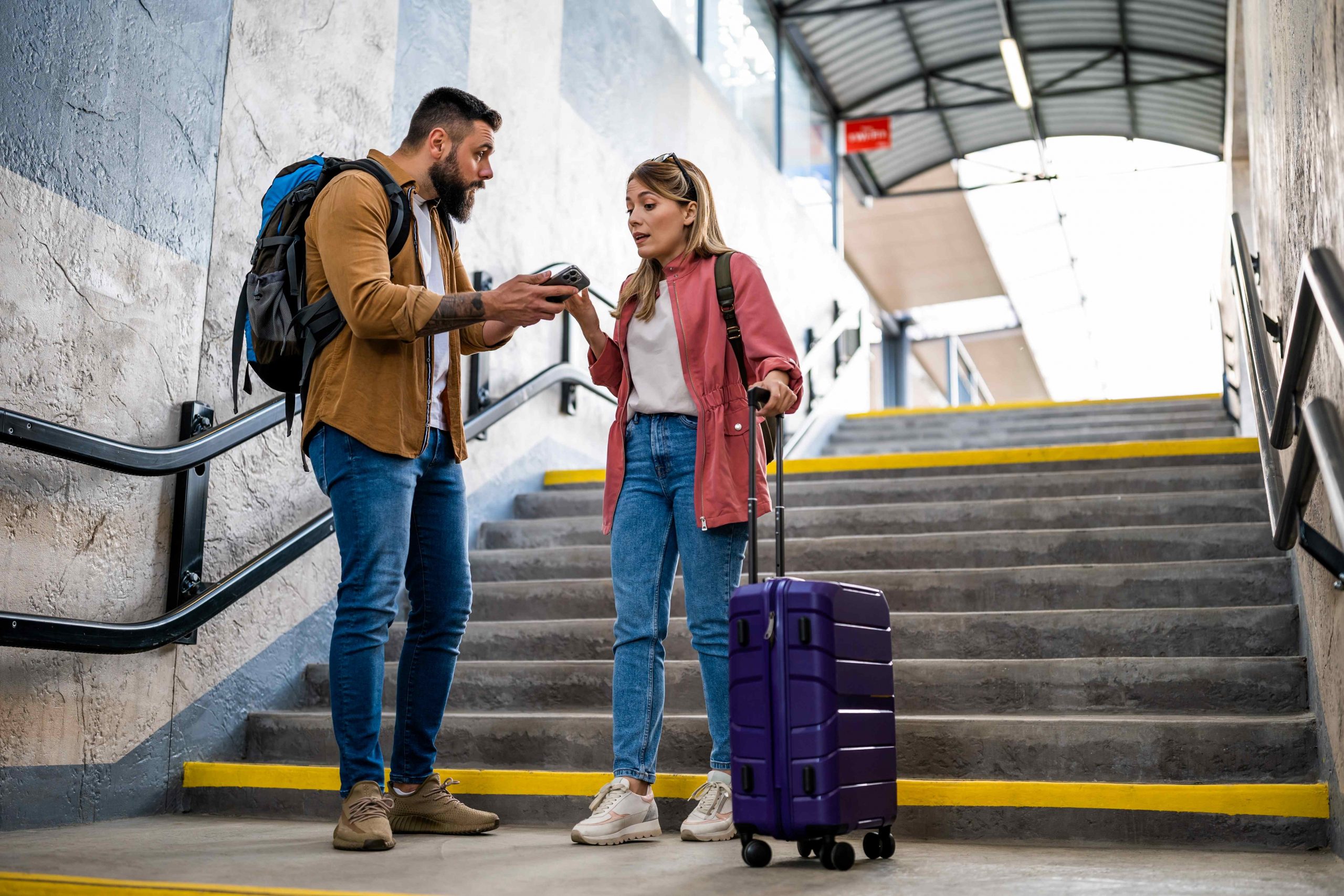Forget about household chores and budgets. The biggest source of tension for some couples starts with a plane ticket.
You like to get to the airport early , they like to come in hot. You insist on checking a bag, they preach carry-on only. And then there’s the vacation to-do list: You need down time, they have FOMO if they don’t see everything.
What’s a conflicted couple to do? Instead of complaining about, or showing contempt for, your partner’s travel habits, learn to love each other’s quirks, tastes and temperaments. After all, you could both be right. Getting that advance ticket for a hot museum may be the only way to see it, and you may be surprised how nicely that afternoon nap hits you.
Short of separate vacations , the best way to address travel differences, a therapist and travelers who have (mostly) figured it out told me, is communication and compromise. You don’t have to be in a relationship to benefit from their lessons. The advice also applies to traveling with friends and family.
Learning to do less
When planning his honeymoon a dozen years ago, Chris McEwen drew up a long list of must-sees in Italy. His wife-to-be, who prefers leisurely mornings and wandering, wasn’t having it.
She told him, “Yo, pump the brakes dude. We are not doing all that,” McEwen, a 49-year-old IT professional in North Carolina, says.
In the end, he relented. And today, one of his favorite memories from the trip is spending hours walking around Rome’s Trastevere neighborhood at the end of their trip. He finally understood the joys of not doing much.
In the years since, they have continued to compromise. He still darts out of bed on vacation, but heads out for a walk and brings back coffee.
On a spring break trip to Arizona with their children, ages 5 and 9, this year, she agreed to his bucket-list slot canyon tour in Page, Ariz., despite also planning to see Scottsdale, the Grand Canyon and Zion National Park.
For an upcoming trip to New York City, he’ll go to a Broadway show with her (but not two).
Some travelers find middle ground. Others discover that the opposite approach that their significant other takes can work for them.
Valerie Paxton, a 61-year-old business adviser who lives near Phoenix, rarely takes a trip without creating a spreadsheet or Word document with every little detail. For an upcoming trip to Italy to celebrate her brother’s 60th birthday, the entries include the types of wine that will be served during a nearly $400 wine-pairing luncheon at Antinori winery in Tuscany.
She has travel-planning documents dating back to 2008 and says she will defend her meticulous planning “to my dying day.”
Her engineer husband isn’t convinced all the stressful planning work is necessary. “He’s like, ‘Why don’t you just not do it and we’ll just wing it?’ ” Paxton says. “And that’s where the tension is.”
He likes nothing more than seeing where the day takes them by talking to locals. She used to consider it a waste of time. On a trip to Napa for his 55th birthday last month, they had not a single plan. She didn’t even know the location of the vacation rental. They went on a 24-mile bike ride and then stopped into a local bar the shop owner recommended. At the bar, they got their recommendation for dinner.
“I may be a convert,” she says.
Travel as therapy
Psychologist Joshua Coleman counsels couples in his San Francisco-area practice and says travel issues are no different than many other conflicts in a relationship. Resolving them comes down to mutual, thoughtful conversation, he says.
“If people really feel understood and they emerge feeling like, OK, that person really gets me, they’re just in a much better position to want to compromise,” he says.
No good comes from simply giving in about, say, that weeklong vacation you’re dreading and then stewing about it. The other person will pay a price later, he says.
Coleman and his wife have been married for 35 years and found a workaround to their different vacation tastes. He loves activity and she loves relaxing at the pool or beach with a book. On a recent family trip to Hawaii they made time for lounging and a snorkeling excursion.
“If every vacation was a beach-read vacation, she would be completely happy and I would be completely insane,” he says.
Veteran Wall Street airline analyst Jamie Baker and his wife are travel pros who eloped nearly 30 years ago to take immediate advantage of his flight benefits at Northwest Airlines.
They decided early on to stay in their own lanes, he says. He handles all flight arrangements and his wife, a former chef, handles accommodations and dining reservations.
Baker is the stereotypical airport dad—on steroids. He insists his wife and adult sons are packed 24 hours before the flight in case their flight is significantly delayed or canceled and there’s an opportunity to jump on an earlier flight.
He’s gone so far to book a “chase car” in addition to his regular car service. This second car trails his travel party by about 5 miles, just in case.
The backup ride saved a trip to Japan several years ago after a tractor trailer accident brought traffic to a standstill. That car picked them up on the other side of the freeway and they dashed across the median with their rollaboards.
Baker says his preflight neurosis has gotten worse over the years because he can check air-traffic control, flight status, road conditions and more from his phone. His family has come to accept his flight prep as gospel, he says, and knows not to talk to him until they are at the airport.
“Once we’re at the curb, it’s all smiles and relief,” he says.
— Sign up for the WSJ Travel newsletter for more tips and insights from Dawn Gilbertson and the rest of the Journal’s travel team.
Write to Dawn Gilbertson at dawn.gilbertson@wsj.com









